Do You Pay Personal Property Tax in Texas? A Complete Guide
August 7, 2025

Key Takeaways:
- Personal vs. Real Property: Real property refers to land and structures permanently attached to it. Personal property includes movable items like business equipment, tools, and inventory. For Texas homeowners, personal effects such as furniture and electronics are not subject to property tax, but business-use assets often are.
- What’s Taxed and What’s Not: Business-related assets, such as office furniture, inventory, commercial vehicles, and machinery, are typically taxable. Homeowners do not need to report household belongings, but business owners must document and report property used to generate income.
- Appraisal Valuations and Real Estate Exemptions for Business Owners: Appraisers use cost, market, and income-based methods to calculate taxable value. Real estate exemptions may apply for homesteads, seniors, disabled individuals, veterans, and qualifying land or organizations.
Many Texas homeowners ask: “Am I paying more than I should?” or “What even counts as ‘personal property’ when it comes to Texas property tax law?” If those questions sound familiar, you’re in the right place.
At Texas Tax Protest, we’re making property taxes more transparent for all Texans. Our team has helped thousands of homeowners, seniors, veterans, and business owners achieve fair tax assessments by guiding them through protests, securing exemptions, and demystifying the sometimes-opaque world of Texas property taxes.
In this comprehensive guide, we’ll tackle everything you need to know about Texas personal property tax – what counts as “personal property,” how these taxes are assessed, the exemptions you might be missing, and proven steps to advocate for a lower assessment. Say goodbye to confusion and hello to maximizing your savings, all while making the complex simple.
What’s the Difference Between Personal Property and Real Property in Texas?
Understanding what’s taxable starts with knowing how the state separates personal property from real property. These categories affect which items get assessed, how they’re valued, and what exemptions may apply.
Real Property Includes Land, Homes, and Permanent Structures
Real property covers what most people associate with traditional property taxes: land, buildings, and anything permanently affixed to the ground. That includes your house, garage, guest home, or commercial building. Your county appraisal district evaluates these structures using sales data from similar properties. From there, adjustments are made for details like square footage, condition, upgrades, and even lot shape or topography.
For example, a two-story brick home in Frisco that’s recently been remodeled will likely be assessed at a higher value than a smaller, older home nearby, even if they’re in the same neighborhood. That’s because appraisers adjust based on new HVAC systems, roof age, and kitchen updates.
Personal Property Covers Items That Move or Depreciate
Personal property refers to items that aren’t fixed to one location. This includes business-related machinery, inventory, tools, office furniture, and vehicles. In Texas, most homeowners don’t pay property taxes on household belongings like sofas or TVs. However, business owners do need to report and pay taxes on personal property used for commercial purposes.
Let’s consider this: you run a home-based business repairing computers. The laptops you repair for clients aren’t taxed, but the tools, diagnostic equipment, and office furniture used for your business may be. That’s personal property subject to taxation. However, your bed, dining table, and game console are considered non-taxable personal effects.
Appraisal districts calculate the taxable value of personal property using cost data and depreciation schedules. For instance, a five-year-old office printer may be valued much lower than a brand-new one due to wear and a shorter lifespan.
Why These Distinctions Matter When Tax Season Rolls Around
Knowing what counts as real or personal property helps you focus on what matters when reviewing your tax notices or filing a protest. Homeowners usually monitor increases in home valuation. However, business owners must keep detailed records of equipment and inventory to confirm whether the listed values reflect current market conditions.

Which Items In Texas Households Are Subject To Personal Property Taxes?
Texas doesn’t require most residents to itemize their personal belongings for property tax purposes. However, you may have taxable assets under business personal property laws if you operate a business or own equipment to generate income. Knowing where the line is drawn between what’s taxed and what’s excluded can help you avoid surprises and stay prepared during tax season.
Taxable Personal Property
Items used for business purposes, even inside a residential home, often fall under business personal property taxation. These assets are typically subject to annual reporting and valuation by your local appraisal district.
- Office equipment: Desks, chairs, and computers used in a home office or commercial setting can be assessed if they contribute to income-generating activity.
- Machinery and tools: Equipment used for production, repair, or fabrication—such as power tools, CNC machines, or specialty gear—may require documentation for valuation.
- Business inventory: Products intended for sale, including handmade goods, packaged items, or stored materials, are generally taxable if held by a business at the start of the year.
- Commercial vehicles: Vans, trucks, or trailers registered to a business or used in business operations often appear on rendition forms and may be taxed separately from personal-use vehicles.
Items Exempt from Personal Property Tax
Most homeowners in Texas don’t need to worry about personal property taxes on their everyday belongings, not used in the production of income. These items fall outside the scope of what appraisal districts typically assess.
- Furniture and decor: Sofas, dining tables, rugs, and decorative pieces used in your home are not taxed under personal property rules.
- Clothing and accessories: Wardrobes, shoes, jewelry, and seasonal items are considered personal effects and excluded from taxation.
- Home electronics: Televisions, gaming consoles, tablets, and sound systems used for personal enjoyment are not subject to property tax.
- Appliances and collections: Kitchen appliances, hobby gear, books, and collectibles are not itemized for tax purposes in residential settings.

How Appraisal Districts Value Personal Property in Texas
Appraisal districts across Texas use standardized methods to assign a taxable value to personal property. These values are based on how an item was acquired, how long it’s been used, and whether it still holds market or income-generating potential. Let’s go into more detail.
- Cost Approach: Appraisers begin by estimating how much it would cost to replace an item with a new one of a similar kind and quality. Then, they subtract depreciation based on the asset’s age and condition. This method is often applied to office furniture, computers, machinery, and other tangible items that gradually lose value over time.
- Market Sales Approach: When data is available, appraisers look at recent sales of comparable items. Since no two assets are identical, they make adjustments to account for differences in year of purchase, physical condition, and performance.
- Income Approach: This method applies to assets that help generate revenue, such as rental equipment or leased machinery. Appraisers estimate the income the item could produce, then apply financial models to calculate its taxable value. This approach is less common but may apply to certain business types.
- Supporting Documentation Matters: As always, businesses are responsible for submitting a rendition form each year. The more accurate the documentation, the stronger your position will be during a valuation review or protest.
- Our Team Can Help Clarify the Math: At Texas Tax Protest, we review asset data, depreciation rates, and valuation methods to catch inconsistencies or inflated numbers before they cost you. We also help clarify the math by filing the rendition for you.
Real Estate Exemptions and Value Caps That May Lower Your Property Tax Bill
Texas property tax law includes several real estate exemptions and thresholds that can reduce how much you owe in property taxes, particularly for homeowners, seniors, veterans, and those with qualifying business or land use cases. These tools can offer meaningful savings when applied correctly.
General Homestead Exemption
For homeowners who live in their property full-time, the general homestead exemption can reduce the taxable value of a home for public school taxes by $100,000 in 2024. This means a home valued at $300,000 would be taxed as if it were worth $200,000 for school-related taxes. Some local taxing entities offer additional exemptions, so reviewing your county’s specific options is worth considering.
Senior and Disability Exemptions
Homeowners age 65 and older, or those with qualifying disabilities, may be eligible for additional tax reductions on top of the standard homestead exemption. Depending on your appraisal district and taxing jurisdictions, these reductions can lower the property tax owed by tens of thousands of dollars annually. Age-based exemptions may also freeze the school district portion of property taxes, providing long-term relief.
Veteran Exemptions
Texas offers tiered exemptions for disabled veterans based on their VA disability rating. A veteran with a 100% service-connected disability rating may qualify for a full exemption, while those with lower ratings may receive partial exemptions. Surviving spouses of qualified veterans may also be eligible for property tax relief.
10% Value Cap for Homesteads
Texas property tax law limits the amount the appraised value can increase for homestead properties each year. Even in a rising real estate market, the increase in taxable value for residential homesteads cannot exceed 10% from one year to the next. This cap helps prevent steep hikes that could otherwise outpace household budgets.
Exemptions for Special Property Types
Agricultural land, wildlife management areas, and properties owned by qualifying charitable or religious organizations may be eligible for special-use exemptions. These are granted based on how the land or structure is used and may require additional documentation. Our team can help clarify the match and file the rendition.
Protest Rights When Personal Property Is Overvalued
Texas property tax law gives property owners the right to challenge personal property values that appear inflated or inaccurate. If your business equipment, inventory, or commercial-use furniture is valued higher than its current market worth, filing a protest with your appraisal district can help correct the numbers. Here’s how the protest process works:
- File a rendition first (recommended): Filing a rendition—your formal report of personal property and its value—is required. If you don’t file, a 10% penalty on the amount of tax due will be added to your bill. However, even if you don’t file a rendition, you still retain the right to protest the appraised value. Filing early strengthens your position by providing the appraisal district with your documented valuations up front.
- Document your valuation case: Gather any paperwork that shows a more accurate valuation, purchase receipts, equipment condition reports, or sales data for similar assets. Differences in age, use, or specifications should be clearly outlined. For instance, a five-year-old office printer will likely carry a lower value than a newer model with updated features.
- Present your evidence at the ARB hearing: After filing, you’ll be scheduled for an Appraisal Review Board (ARB) hearing. This informal meeting allows you to review your documentation and explain the math behind your protest.
- Push for a fair and data-backed resolution: A well-prepared protest helps shift the conversation from assumptions to hard numbers. The process exists to protect Texas property owners from outdated or inflated valuations, and our team is here to help you advocate for an accurate assessment.

Final Thoughts
Texas personal property tax laws can feel complex for new property owners or business operators managing assets beyond land and buildings. For most homeowners, there’s relief in knowing that everyday household items not used in the production of income are not subject to personal property tax. However, business owners must stay alert to reporting requirements for equipment, inventory, and commercial-use tools, since valuation errors or missed filings can lead to added expenses.
Across Texas, appraisal districts use specific formulas to assess personal property. Those formulas aren’t always perfect, so reviewing your notices can make a meaningful difference.
Read more:
- Is It Possible to Avoid Property Taxes? States to Consider
- Seasonal Home Maintenance Checklist: What to Do Each Quarter
- Moving to Texas? Here’s What You Should Budget For
Frequently Asked Questions About Texas Personal Property Tax
What is business personal property tax in Texas?
Business personal property (BPP) tax in Texas typically refers to taxes levied on tangible personal property used in the production of income. Unlike real property tax, which targets the land and buildings, personal property assesses the items that are movable and not affixed to the real estate.
When is the deadline to file a Business Personal Property (BPP) rendition?
The deadline to file a BPP rendition in Texas is April 15th each year. However, businesses may request an extension in writing, which can push the deadline to May 15th. Failing to file on time results in a penalty equal to 10% of the taxes due, making timely compliance especially important.
Is business personal property taxed in Texas?
Yes, business personal property is taxed in Texas. This covers assets like machinery, office furniture, computers, and inventory owned by businesses. County appraisal districts require businesses to annually report these assets so their taxable value can be assessed.
What happens if you don’t pay personal property tax in Texas?
Failing to pay personal property tax can trigger penalties, interest charges, and collection actions. For businesses, unpaid taxes can lead to liens or even property seizure. Promptly addressing assessment notices and deadlines can help avoid costly consequences.
Is agricultural equipment subject to personal property tax in Texas?
Agricultural equipment used exclusively for farming or ranching may qualify for business personal property tax exemptions. The key is proving the equipment’s exclusive use for qualified agricultural purposes, a process where Texas Tax Protest offers expert guidance.
Can nonprofits be exempt from personal property tax in Texas?
Nonprofit organizations in Texas can qualify for exemptions from personal property tax, depending on their purpose and use of property. Nonprofits must meet strict criteria and file the appropriate exemption applications with proof of eligibility.
Are mobile homes subject to personal property tax in Texas?
Mobile homes in Texas are treated as real property once they are permanently affixed to land you own, and you pay property taxes like any homeowner. If the mobile home is not affixed and is movable, it may be subject to business personal property tax instead.











